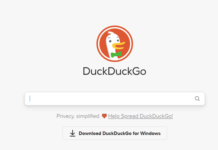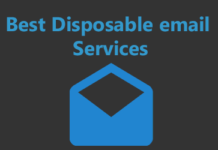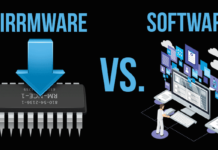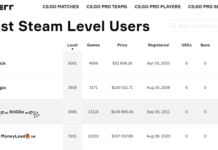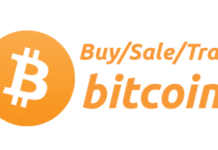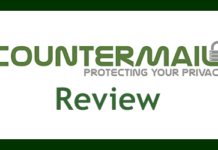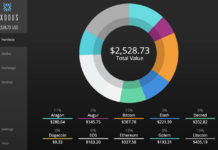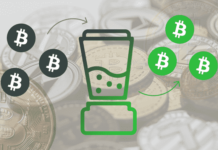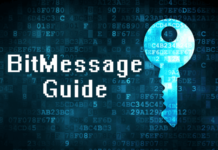How to remove yourself from the internet? If that’s your question, you’ll become invisible on the web by the end of this piece.
If you’ve used the internet for more than a day, it already knows more about you than your mother. But, I’m sure you’re aware of that, why else would you be reading this piece, eh?
In this piece, we will surgically remove your existence, history, and identity off the web. When we’re done, no one, not even the govt/FBI or your ISP will be able to trace you.
Now, there are two reasons why I feel you’ll like this piece. First, you’ll not be required to completely stop using the internet. This article is focused on making you disappear without forcing you to stop using the internet.
Second, almost all the ways to disappear from the internet listed on this piece are either 100% free, or dirt-cheap. No massive investments needed.
Also, I’ve broken down this piece in two parts. The first part consists of “removing your exiting footprint”.
The second part of this guide will discuss how to “not leave any future footprints”.
Excited? I sure hope you are! Let’s get started?
Get Yourself Removed from Data Brokers
Data brokers are basically agencies/companies/third-parties which buy your information from any source available.
These sources may be e-commerce sites, e-mail services, any kind online services where privacy is not matters, streaming sites, songs download sites, sports streaming sites, gaming sites and your local pharmacy, that porn site you visited or literally anywhere else.
The data may contain anything and everything. This may include your name, address, contact number, govt.-issued identification numbers etc.
Some of the biggest names in the industry include Epsilon, FICO, Acxiom, infoUSA, Intelius, Truthfinder, USSearch, Spokeo and etc. Mostly given names deal in records selling, user can search people records like people details, criminal records, background checking or any employee or people, phone lookup service and much more.
Ever wondered how you get texts and calls from a health insurance company just after being to the hospital? This is how.
Unfortunately, all this is legal because we live in a capitalist society. (No, China isn’t any better either).
Fortunately, you can opt out of about 43% of these data brokers for free. The rest either don’t allow opting out, or you’re required to pay a premium.
I’ll be honest. It’s not easy. It depends on where you live, where the data broker is based out of, and there’s no one-click “remove me” button.
The process is different for each site. It generally involves e-mailing them or getting in touch over call.
Here is a list of over 200 data brokers, their contact information and information if they do or don’t allow opting out.
You need to manually visit each of these, see if they’ve got your data, and then request it to be deleted. At times you may find opt-out forms, at other times e-mails would need to be sent.
To make things easy, I’m listing the direct links to opt-out forms for the top data brokers out there:
You can also use this link to send deletion requests to the top 10 data brokers in seconds.
Use An Automated Third-Party Service
Yes, removing yourself from the internet manually is tiring and requires a lot of time and energy and also no one can guarantee you, you will successfully removed your data from these sites. I am saying that this because I tried to reach to remove my record from these data broker but didn’t get any reply from these sites.
According to us, If you are really interested to remove your records and also want to prevent such type hassle, boring time consuming process then you may try these third party services.
Fortunately, you can use third-party tools to remove yourself from data brokers.
- Incogni – Offers services to remove your personal information from 130+ data brokers, job completion records is very good, out of 100 job they successfully resolve 80. Now Incogni.com offering 50% off on yearly plan, price is $6.49/Month.
![]() Note: US, UK, EU, Swiss and Canadian residents only
Note: US, UK, EU, Swiss and Canadian residents only
- DeleteMe is a service that deletes you from around 40 data brokers, every 3 months. Yes, these brokers re-collect data so this needs to be a continuous process.
- OneRep is another service that deletes you from over 190 sites and even has a 5-day free trial!
Get Yourself Removed from Google
Here’s a magic(ally terrifying) trick for you!
Go to Google, type your first name + last name + city + country.
You’ll see nearly every person that exists with that name around you! If you go down to pages 2/3 or 4, chances are you may even find yourself!
Now, you can’t just “opt out” of Google. However, most of these Google results will be from data brokers which I’ve already explained how to get rid of.
You may still get your data/images removed specifically from Google. Of course, Google being Google has a very limited no. of acceptable causes when data with your name/information is removed.
Go to the Google personal information removal page. You’ll find all the cases in which such requests will be entertained.
If you fall under any of these cases, request deletion.
Delete Accounts You Don’t Use Anymore
I’m sure you’ve thought of this yourself! However, you just don’t remember all the websites you’ve signed up at, did you?
We all sign up at meme sites, news websites, file-sharing services and so on.
Well, you can use Incogni.com. It’s a website that has a database of over 130+ sites! I’m sure once you go through the names, you’ll remember at least a few of these that you signed up for as a kid.
It also shows the “difficulty” for deleting your information for each of these sites. Additionally, it gives you the exact deletion steps for each website.
You can even filter the sites based on popularity, sort them alphabetically, or even difficulty-level!
Sure, you’ll still have to delete your data manually. For that, you’ll probably have to recover your account as you’d have forgotten your login credentials for most of these.
However, it does make things easy, doesn’t it?
Of course, the sites listed on incogni.com are just a fraction of the sites that have your information.
As a general rule, here are some other categories you may need to check:
- E-mail accounts (especially Gmail)
- Social network.
- Dating websites
- Gaming websites
- E-commerce websites (this is important. These have more data about you than most other sites).
Hey, deleting accounts sure isn’t the best solution! You may still want to use social network without attaching them to your identity, right?
Keep reading and I’ll share exactly how to do that!
How to Protect Your Web Identity for All Future Purposes
So far, I’ve tried covering how you can remove data that already exists about you.
However, how will you protect yourself in the future? How do you ensure that data about you isn’t collected when you next sign up at a social network or buy something online?
Well, here are a few tips that ensure you stay invisible once you’ve removed yourself from the internet.
- Use a VPN to protect yourself from your ISP/govt.
- Ditch Gmail/Yahoo for anonymous e-mail alternatives
- Ditch Google and Bing for anonymous search engines
- Ditch Google Chrome & Edge for LibreWolf, Brave and Tor Browser.
Let’s get into the details then?
1. VPN for Hiding Yourself from Your ISP/Govt.
The VPN is your best, strongest, most effective, and yet easiest-to-use shield!
So, majority of your data, some of the most privacy-invading and personal data is leaked through your “IP Address”.
Click here for a sneak-peek. You’ll instantly be shown your IP address, location, internet provider and other such data! Scary, right?
IP address is basically your personal identification on the web. When you connect to the web, your personal IP is what’s used to browse everything.
In simpler words, it’s like your phone number that’s used to call the different websites/services on the web.
Each website you visit, query you search for, link you click on, everything you order is all recorded and attached to your IP address. Not just that, your IP address can also be used to hack into your system!
Your IP is assigned to you by your ISP. Hence, your ISP always knows what you’re doing on the web. They can even control what you can and can’t access. At times, ISPs even reduce your internet speed willingly for various reasons!
Moreover, anyone with access to your IP address knows exactly where you are, what you eat, like, dislike, wish to purchase and a lot more.
This is where a VPN comes to your rescue.
The VPN masks your real IP address and provides you an IP address of its own. This makes sure that every website you visit and every app you use now sees this new IP address.
The twist is, you get a new IP address each time you connect to the VPN. Some VPNs even offer rotating IPs (that change while you’re browsing).
Hence, these websites will still collect what you search for and what you click on. However, this data is now not linked to you. It’s linked to an IP address that you probably won’t ever use again.
In simpler words, it’s like you get a new identity each time you connect to the web using a VPN.
Moreover, your ISP can not link any of your activities to you. The same applies to your government. If they request your data from your ISP, they’ll not have any data on you. The IP your ISP gave you now sits unused with no browsing history or footprints!
The question now is, which VPN should you use?
![]() Well, I’ve used NordVPN for over 6 years now and I’d recommend the same. It offers the maximum features, speed, security despite ironically being one of the cheapest VPNs in the industry.
Well, I’ve used NordVPN for over 6 years now and I’d recommend the same. It offers the maximum features, speed, security despite ironically being one of the cheapest VPNs in the industry.
Of course, you can go with some other VPNs such as SurfShark or AtlasVPN.
| NordVPN | Surfshark VPN | AtlasVPN | ExpressVPN | TorGuard VPN |
|---|---|---|---|---|
1. NordVPN | 2. SurfShark VPN | 3. AtlasVPN | 4. ExpressVPN | 5. TorGuard |
Ditch Gmail/Yahoo for Anonymous Email Alternatives
Gmail, Yahoo, and all other mainstream e-mail providers are probably the biggest privacy-invaders out there. Google (Gmail) individually has more privacy controversies than all other e-mail providers combined.
I hope you’ve already deleted your Gmail/Yahoo account by now.
But, living without an e-mail isn’t an option in today’s world, is it?
Well, that’s where anonymous e-mail providers come in. These are providers which do not log your IP address, do not demand real names/address or cell verification.
You can send and receive e-mails without these providers knowing who you are.
The best privacy-respecting Gmail alternatives are:
Ditch Google and Bing for Anonymous Search Engines
Google of course logs your searches to “make the service better”. The same goes for most other mainstream search engines. Data is collected to show you better, more relevant ads, better results.
Of course, the data is used for a lot more than just that.
This is why you need to stop using Google, Bing, Yahoo (seriously? You still use Yahoo?) and switch to anonymous search engines.
DuckDuckGo is the undefeated contender for the list. It’s a search engine that was built primarily, solely and exclusively to promote privacy.
It also has the largest database when compared to other anonymous search engines. And yes, it’s free!
SurfShark VPN recently launched its own anonymous search engine. You can use many other search engines such as:
There are like a dozen other anonymous search engines. These however will more than make your searches anonymous.
Ditch Google Chrome & Edge for LibreWolf, Brave and Tor Browser
Google Chrome is from Google. I don’t trust anything from Google! They make good, feature-rich products but privacy is generally a concern.
Most browsers collect a ton of information about you. On the surface they of course know the websites you visit, clicks, interests etc.
However, because they’re “installed” on your system, they also know your OS, screen resolution, processor and other similar data.
In the wrong hands, combined with your web history, this can be fatal.
So, you of course need a browse that doesn’t trace/track your web activities or hardware.
Two of the best browsers to use when seeking anonymity are:
- Librewolf Browser – https://librewolf.net/
- Brave browser – https://brave.com/
- Tor Browser: Extremely anonymous, also hides your IP address. Not the best for streaming videos though.
Other Privacy Tips to Remove Yourself from The Internet
Well, we’ve covered the technical aspects so far. However, there’s a lot more you can do to make yourself invisible on the web!
- Never share your real-name/address or contact info when signing up, anywhere. Not even on anonymous e-mail services.
- Disable the GPS on your phone when possible.
- Do not grant apps access to location, camera, mic unless it’s immediately required.
- Make it a habit to always connect to the VPN both on the computer as well as your phone.
Final Words:
So, that’s how you remove yourself from the internet folks. Obviously, this isn’t an all-encompassing list. There’s still a lot more you can do. However, if you get through these steps, you’re almost as invisible as can get on the web.
Do note that you’ll always leave some footprint on the web. You can never use the internet without signing up at places, or using an IP address. However, these tools/steps do allow you to mask your identity to quite an extent.
That’s it for now folks. Go then, go disappear from the web?
